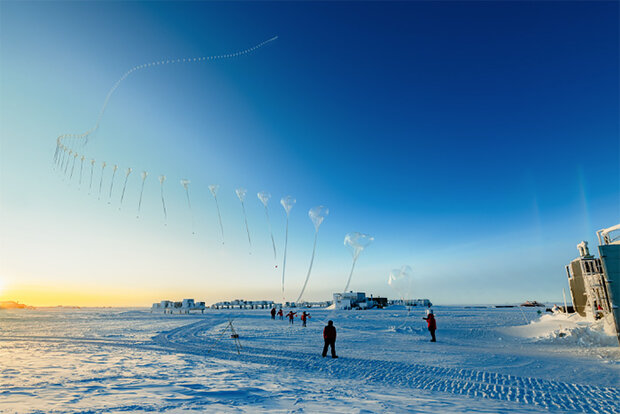Montreal Protocol emerges as a powerful climate treaty

<p>A NOAA ozonesonde — an instrument that helps scientists monitor the Antarctic ozone hole — ascends over the South Pole in this time-lapse photo from October 21, 2020. Credit: Yuya Makino/IceCube</p>

A NOAA ozonesonde — an instrument that helps scientists monitor the Antarctic ozone hole — ascends over the South Pole in this time-lapse photo from October 21, 2020. Credit: Yuya Makino/IceCube
A new report from the U.N., which includes key scientific contributions from NOAA and international partners, confirms that the recovery of Earth’s protective ozone layer is on track, and that the Montreal Protocol, the international treaty that guides the phase-out of ozone-destroying chemicals, has had the additional benefit of slowing global warming.
The “2022 Scientific Assessment of Ozone Depletion” presents the updated status of the ozone layer, which is projected to recover by the mid-21st century to values observed in 1980, before the appearance of the ozone hole. The report also describes current challenges and future policy choices that could influence the ozone layer recovery timeline.
“The Montreal Protocol is one of the most important and successful global environmental treaties ever,” said David Fahey, director of NOAA's Chemical Sciences Laboratory and Co-chair of the Scientific Assessment Panel of the Montreal Protocol. “Since the adoption of the Montreal Protocol, NOAA has led the development of the report, which is produced every four years to guide and support the decisions of the Montreal Protocol. NOAA's leadership aligns with its substantial and longstanding commitment to stratospheric ozone research with models, observations and laboratory studies.”
Read more at the link below.